Emergency Dentistry – Los Gatos, CA
Here for You When You Need Us the Most
Dental emergencies happen in the blink of an eye, leaving you scared, in pain, and desperate for relief. At Los Gatos Dental Group, we want to be the dental office you turn to for the support and skilled care you need most during this difficult time. If you or a family member is experiencing severe dental damage or pain, contact our dental office right away! If your call falls within regular business hours, we’ll be able to provide treatment on the same day so that your recovery starts without delay. We make every effort to see emergency patients as soon as possible.
Please understand that we already have a full schedule and will do our best to squeeze you in, but there may be some waiting times while we attend to others who have previously scheduled appointments. If it is after hours or on the weekend, please call our dental office. The recorded message will have instructions on how to reach our answering service, and they will get you in touch with one of our dentists for emergency dentistry in Los Gatos, CA.
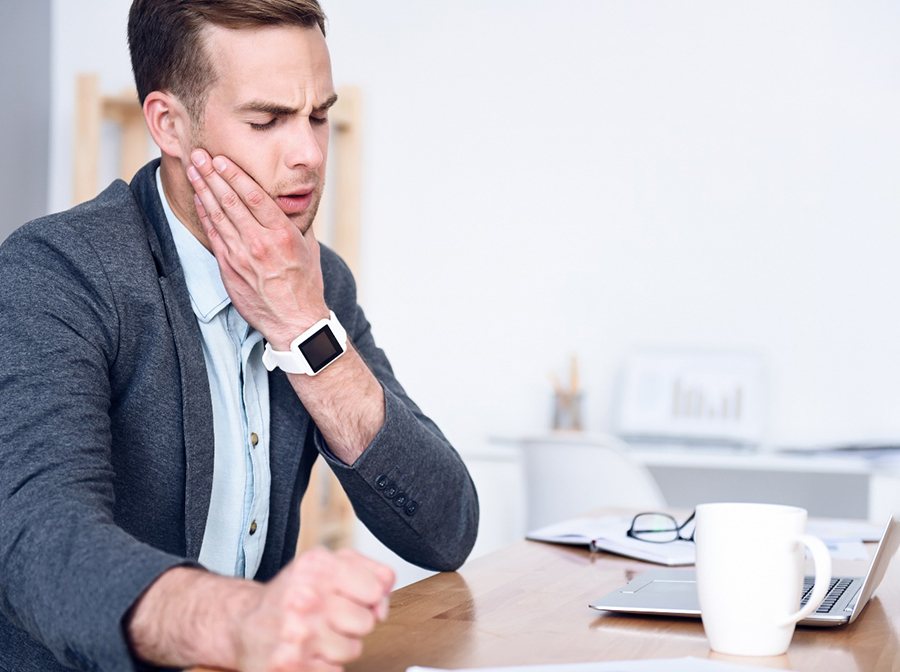
Why Choose Los Gatos Dental Group for Emergency Dentistry?
- Dental Sedation Available
- Caring & Experienced Dental Team
- Same-Day Emergency Appointments
How We Treat Dental Emergencies
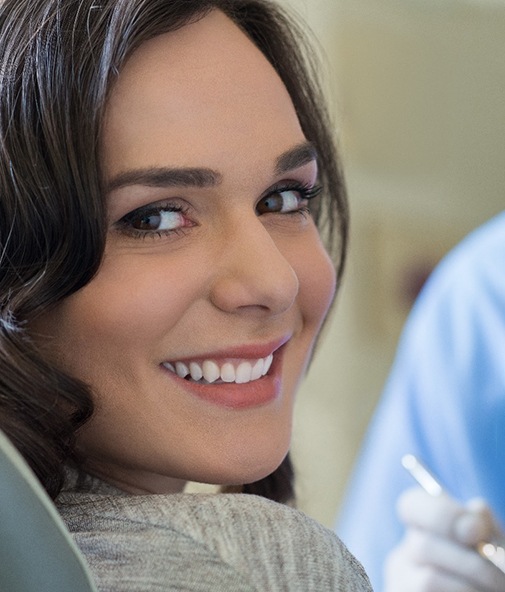
The goal of emergency dental care is to stop your pain, address urgent oral health issues, and keep your smile safe from further harm. We usually deal with emergency situations by following these steps:
- Same-Day Appointment: After you’ve called our office and explained your situation, we’ll make arrangements to see you as soon as we can. If you need some first-aid tips, one of our team members will be happy to advise you over the phone.
- Emergency Exam: At our office, we will take the necessary steps to get you out of any immediate pain while also examining your teeth to figure out what the source of the problem is.
- Review Findings: We will let you know what we found while examining your mouth and give you a clear idea of the current state of your oral health. Then we’ll walk you through the recommended treatments. We won’t ask you to make a decision until after we’ve given you an estimated cost and timeline.
- Get the Care You Need: Finally, we will work quickly to resolve your dental emergency by carrying out the agreed-upon treatment plan, which could involve a variety of services such as root canal therapy, fillings, or crowns.
The Most Common Dental Emergencies
Do you have a persistent toothache? Did you break or damage a tooth in an accident? There are many different reasons why you might need emergency dental care. Below are some common examples of emergency situations; please call us immediately if you notice any of these symptoms or if you have any other reason to be concerned about the state of your mouth.
Understanding the Cost of Dental Emergencies
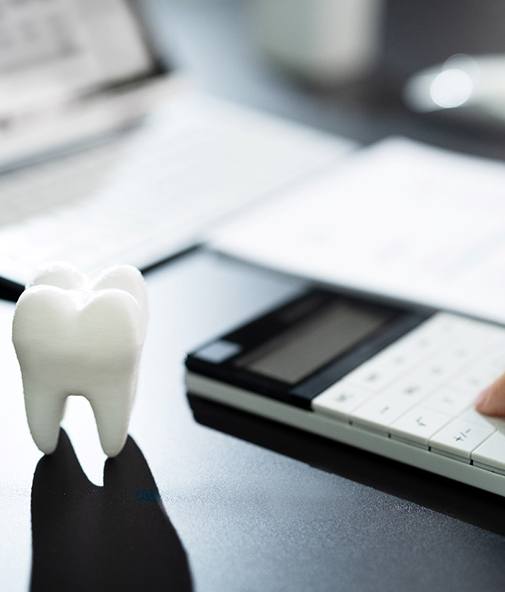
The cost of your emergency appointment will depend on a variety of factors, including what treatment you require and whether you have dental insurance coverage. Our team will never leave you in the dark and will walk you through all of the details of our recommended treatment plan before conducting any procedures. That way, you’ll know exactly what to expect financially and physically.
Keys to Preventing Dental Emergencies

Although it’s impossible to completely prevent a dental emergency from happening, there are several ways that you can drastically reduce your risk of experiencing one. Some of these include:
- Brush your teeth twice each day for two minutes with fluoride toothpaste.
- Floss between your teeth at least once each day.
- Rinse once a day with antimicrobial mouthwash.
- Visit our team every six months for a checkup and cleaning.
- Wear a protective nightguard if you grind your teeth.
- Maintain a well-balanced diet.
Root Canal Therapy
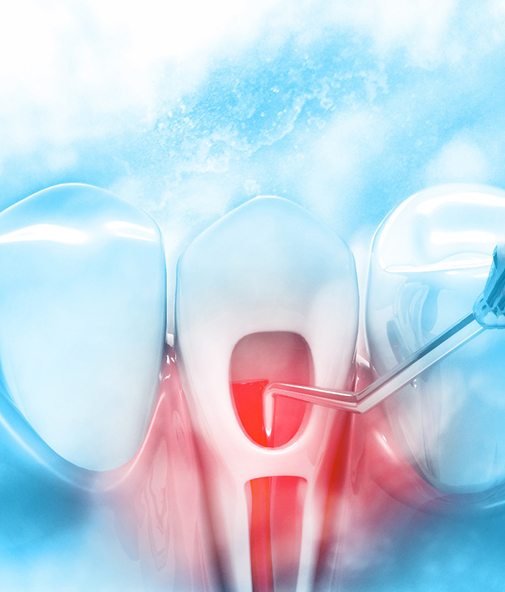
The words “root canal” have the tendency to strike fear in people’s hearts, which is why we’re happy to let you know that this procedure is actually comfortable, revitalizing, and highly successful when it comes to restoring badly damaged teeth that might otherwise have to be removed. Visit our root canal therapy page to learn more.
Learn More About Root Canal Therapy
Wisdom Tooth Extractions
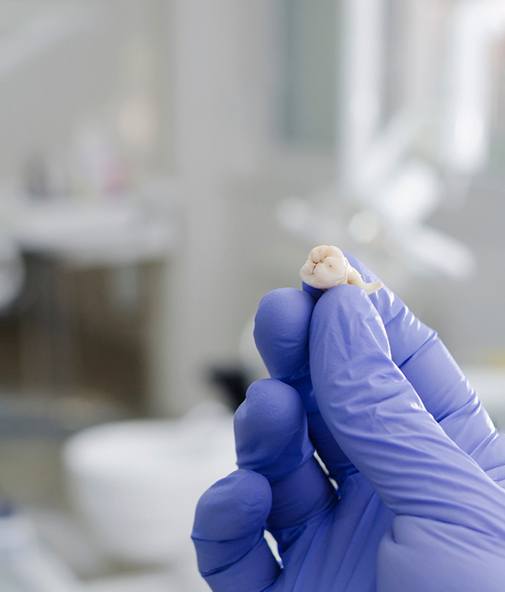
Our team’s top priority is to help you maintain a complete, healthy smile for life – but there are instances where extracting one or more teeth can actually be beneficial for your overall well-being. This is especially true with third molars (also known as wisdom teeth). Because these teeth are the last to emerge in your adult smile, there’s often not enough space for them, and people experience overcrowding, impaction, and infection as a result. The ideal age to have impacted wisdom teeth removed is before 25. After this age, the teeth have become large and fully formed, posing an increased risk of nerve damage during extraction surgery.
Many studies and experts have declared that even healthy, non-impacted wisdom teeth should be classified as a chronic health risk if not removed because of the high likelihood of these teeth causing systemic health issues later in life due to chronic inflammation and bacterial infection. About 90% of the wisdom teeth removal cases that we encounter at our dental office are very straightforward and can be treated while we keep you comfortable using either nitrous oxide (laughing gas) or IV conscious sedation. The 10% that are more complicated are referred to a local oral surgeon. If we determine that wisdom tooth extraction is necessary, you can count on our dentists and staff to handle the process as comfortably and effectively as possible.
Learn More About Wisdom Teeth Extractions
Dental Emergency FAQs
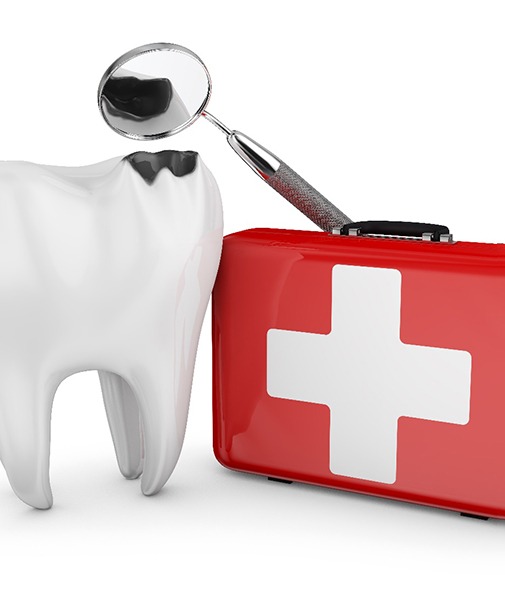
Dental emergencies often come unexpectedly, so it’s understandable that you may have some unanswered questions. Here are the answers to some of the most common questions we are asked about dental emergencies in Los Gatos. If you can’t find the information that you’re looking for below, don’t hesitate to give us a call. We’d be happy to walk you through your situation and get you scheduled for an emergency visit.
Will my toothache go away on its own?
Toothaches generally don’t go away on their own. For this reason, it’s best to schedule a checkup with a dentist just to make sure nothing is wrong. There are many potential causes of a toothache, and you’ll want to rule them out with a professional as soon as possible. Doing this can help you catch underlying problems before they become serious.
How should I sleep with tooth pain?
When dealing with a toothache at night, keep your head elevated. This prevents blood from rushing to your head and intensifying your toothache. Additionally, take over-the-counter pain relievers as needed and avoid foods that are particularly acidic, cold, or hard before bed for improved comfort. A cold compress can also help to dull discomfort.
Should I visit the emergency room first for dental emergencies?
Unfortunately, most emergency rooms aren’t able to address dental emergencies effectively. However, there are three main exceptions. You should head directly to the ER if you’ve experienced a jaw fracture or dislocation, a serious cut or laceration to the face, or an abscess or infection that’s swollen to the point of affecting breathing or swallowing. In pretty much any other circumstance, you are better off visiting a dentist first.
What does throbbing tooth pain mean?
Throbbing tooth pain is likely a sign of infection or inflammation within the tooth. Cavities or cracks in the tooth allow air and bacteria to reach the sensitive inner area. This results in irritation and potential infection of pulp nerves, causing pain. In other cases, throbbing teeth could be due to chronic teeth grinding and clenching. Schedule an appointment with us so we can get to the root of the problem.
Can I pop a dental abscess on my own?
You should never try to pop a dental abscess on your own. Instead, get in touch with a dentist right away, as this is a dental infection and is, therefore, a dental emergency. Popping the abscess will only expose your mouth to more bacteria and irritate the area more. Additionally, putting off treatment can allow the infection to spread to other areas of your body.
I Need a Checkup & Cleaning I Have a Chipped or Broken Tooth I am Missing One or More Teeth I Want to Improve My Smile I Want a Straighter Smile I am Interested in Sleep Apnea Therapy I am Scared of the Dentist View All Our Services
